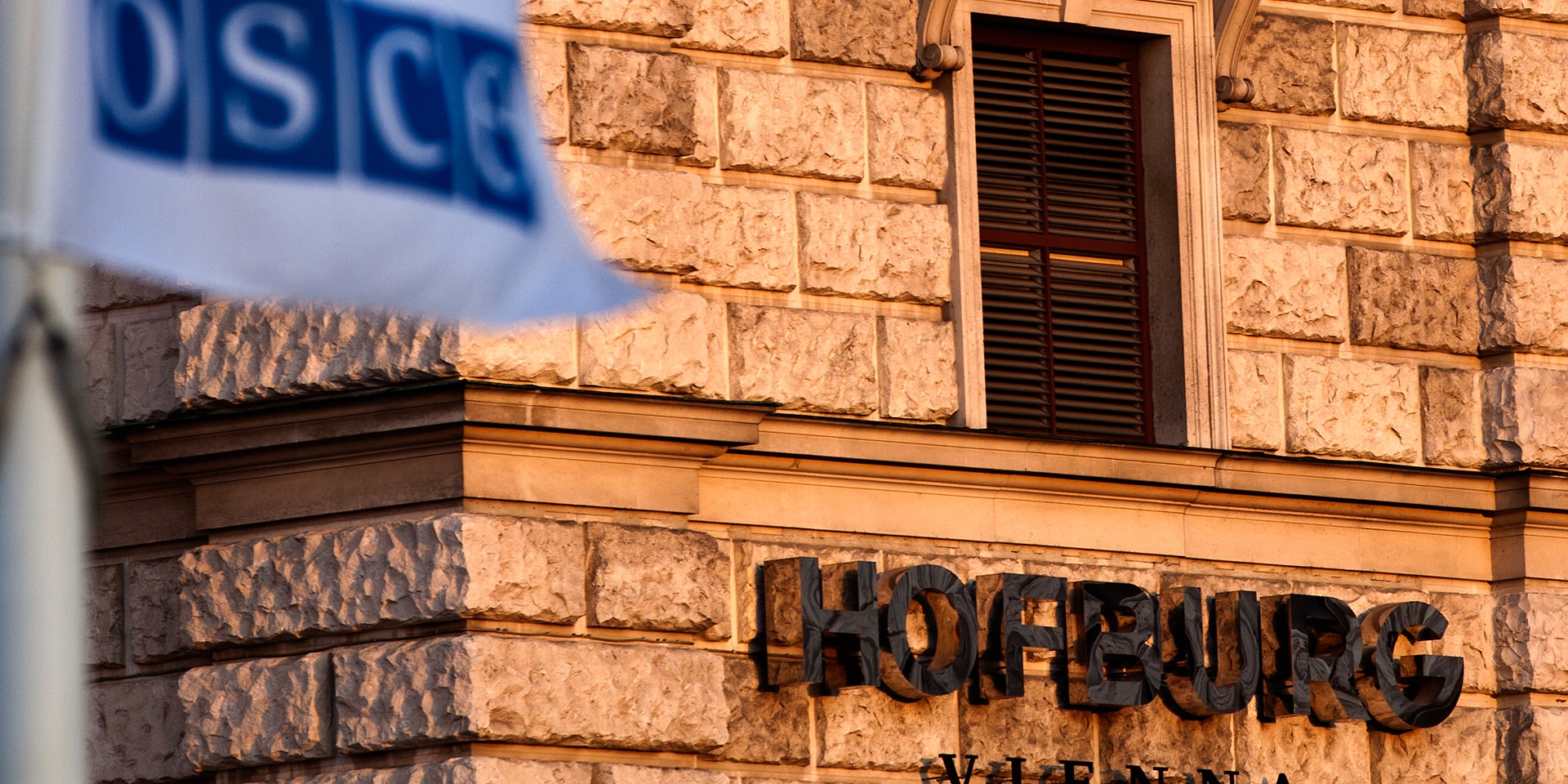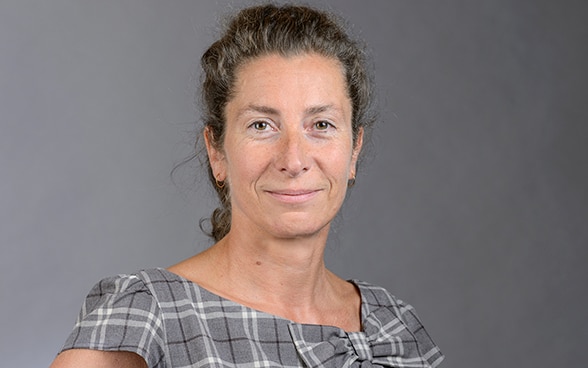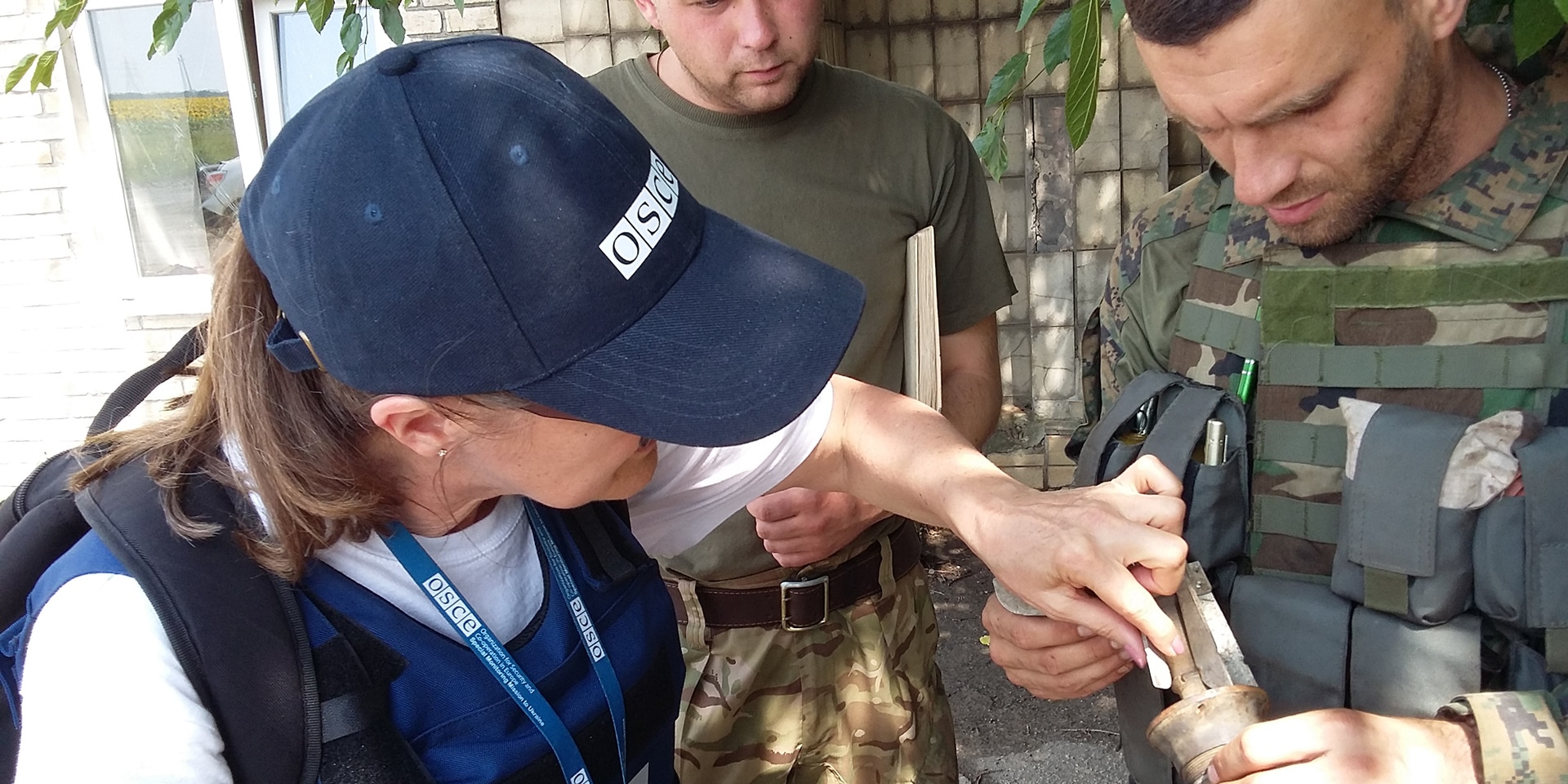Ambassador Heidi Grau as Special Representative of the OSCE Chairperson-InOffice in Ukraine and in the Trilateral Contact Group
The Swedish Chair of the Organization for Security and Co-operation in Europe (OSCE) has appointed ambassador Heidi Grau as its Special Representative in Ukraine and in the Trilateral Contact Group. The Swiss diplomat and expert on Eastern Europe will continue to work towards resolving the conflict in eastern Ukraine.

Hofburg, Vienna: Seat of the Permanent Council, the principal decision-making body of the Organization for Security and Co-operation in Europe (OSCE) that meets regularly. © OSZE/Curtis Budden
The Chair of the OSCE, held by Sweden in 2021, has appointed ambassador Heidi Grau as its Special Representative in Ukraine.
The OSCE Chair is held for one calendar year by the OSCE participating State designated as such by a decision of the Ministerial Council. The function of Chairperson-in-Office is exercised by the Minister of Foreign Affairs of that state and is currently held by Ann Linde, Sweden’s Foreign Minister.
Success of Swiss diplomacy
The appointment by the Swedish Chair extends the Swiss Special Representative's mandate by one year. Ambassador Heidi Grau was first appointed by Albania during its Chairmanship in December 2019. As Special Representative, the diplomat and proven expert on Eastern Europe will continue the Trilateral Contact Group's efforts to reach a peaceful settlement of the conflict in eastern Ukraine.
The appointment of ambassador Heidi Grau as Special Representative can also be seen as an expression of the high regard in which Swiss diplomacy is held both within and outside the OSCE.
Mandates like that held by Special Representative Grau enjoy broad international recognition. At the same time, a brokering role of this kind serves as a prime example at the national and international level of what Switzerland's engagement for peace and security can mean in the context of its bridge-building foreign policy.
Switzerland's engagement as a bridge-builder for peace and security
Switzerland's engagement within the OSCE is based on the principles of its Foreign Policy Strategy 2020–23: Switzerland strives to build bridges in the current volatile international environment to ensure a peaceful, safe and secure world. Peace, security and the rule of law are the foundations of prosperity and sustainable development.
The OSCE plays a key role when it comes to security within Europe as a whole, but also for Switzerland itself. Swiss diplomacy seeks to ensure the organisation can function properly and strengthens its capacity to act, given that the OSCE has a wide variety of instruments for crisis management and conflict resolution at its disposal. This plays an important role in view of what is happening in Belarus, the situation around Nagorno-Karabakh and the conflict in eastern Ukraine.
Official peace negotiations in the Trilateral Contact Group

The armed conflict in eastern Ukraine has been ongoing since 2014. According to the UN, more than 13,000 people have been killed to date.
Official peace negotiations are conducted in the Trilateral Contact Group. The four working groups additionally include representatives of the non-government controlled areas of eastern Ukraine. The Humanitarian Working Group is headed by Swiss ambassador Toni Frisch. Ambassador Frisch's mandate has also been extended by the Swedish Chair. The negotiations have been taking place through video conferencing since the beginning of March 2020 as the COVID crisis makes travel impossible.
The negotiations of the Trilateral Contact Group, on which Ukraine and the Russian Federation sit, are chaired by the OSCE, and specifically by ambassador Heidi Grau since January 2020. A discreet and competent way of working enables the trust and recognition of all sides to be gained in this and similar cases, thereby setting the stage for moving the peace process forward.
OSCE short portrait
- Established in 1975 as the Conference on Security and Co-operation in Europe (CSCE), renamed in 1994 as Organization for Security and Co-operation in Europe (OSCE)
- Regional security organisation as set forth in Section VIII of the UN Charter
- 57 participating states: all European countries plus the US, Canada and all successor states of the Soviet Union
- 6 Mediterranean countries as partners: Tunisia, Algeria, Morocco, Egypt, Jordan and Israel
- 6 Asian partners: Afghanistan, Japan, Thailand, Mongolia, South Korea and Australia
- 16 field missions, mainly in the Balkans, South Caucasus and Central Asia
- Annual budget: around 150 million euros (approx. 70% of which is allocated to field activities)
- comprehensive three-dimensional security concept:
- The politico-military dimension
- The economic and environmental dimension
- The human dimension (human rights and democracy)
- Chairing country plays an important role, effectively managing the organisation
- Decisions taken by consensus

